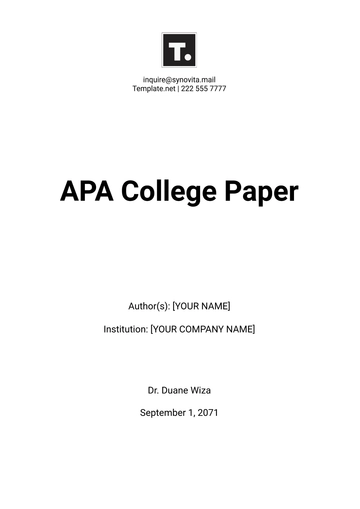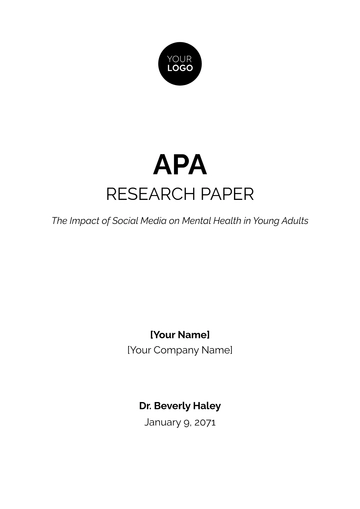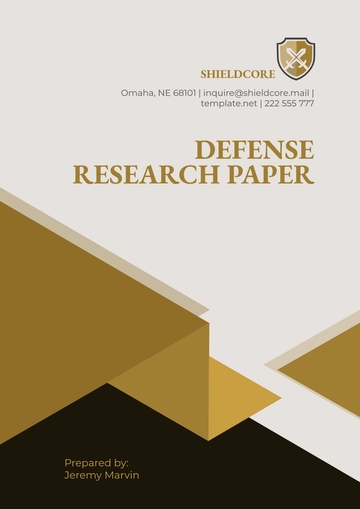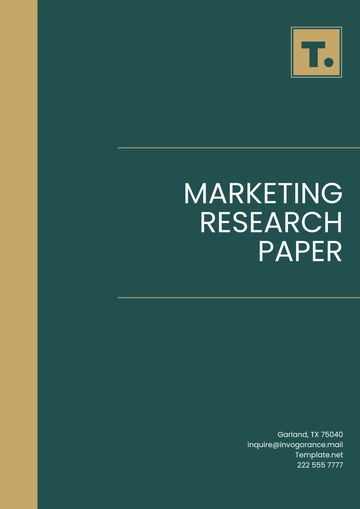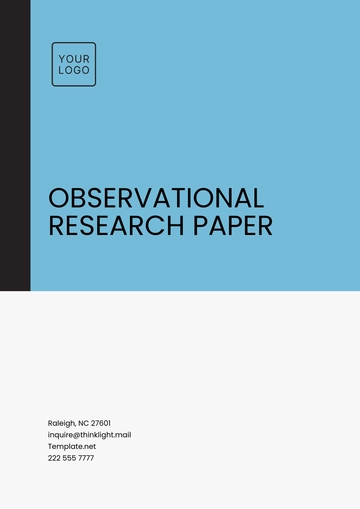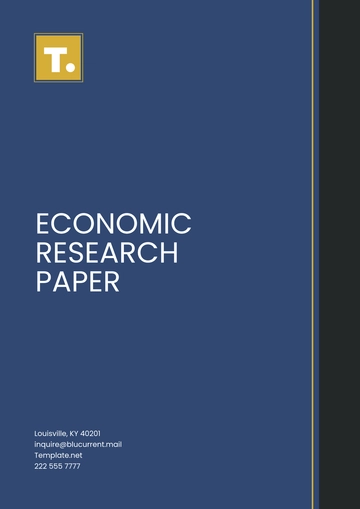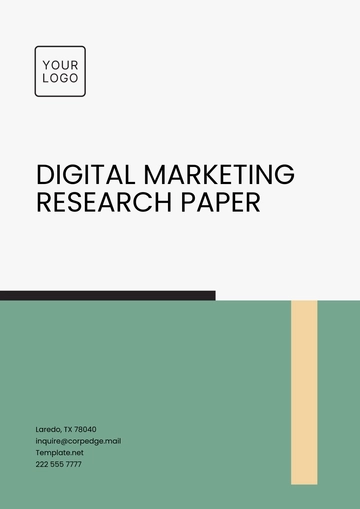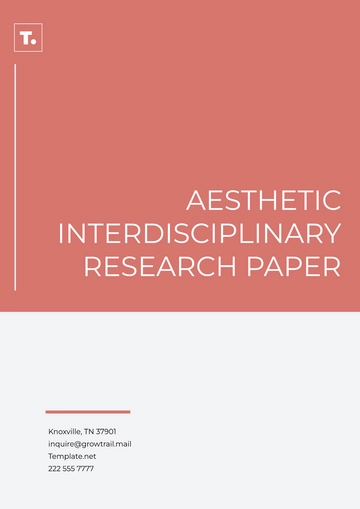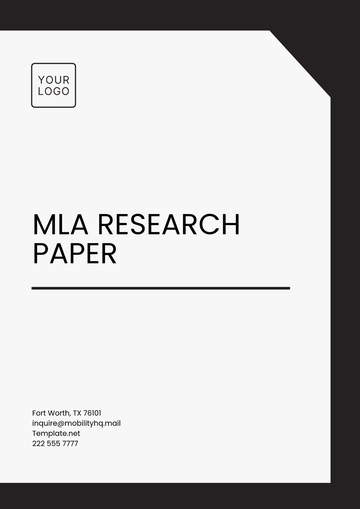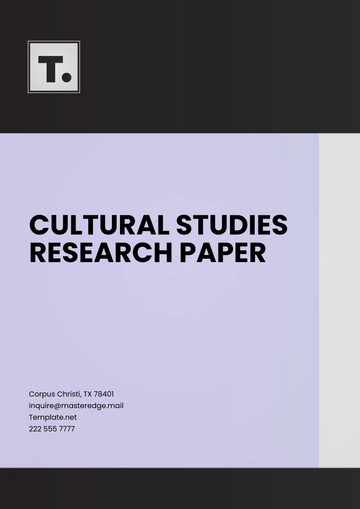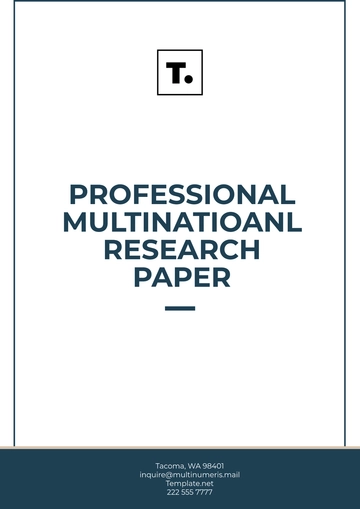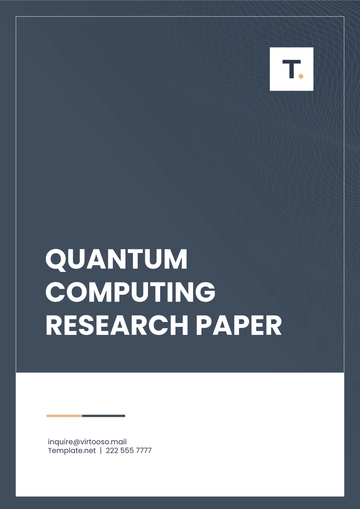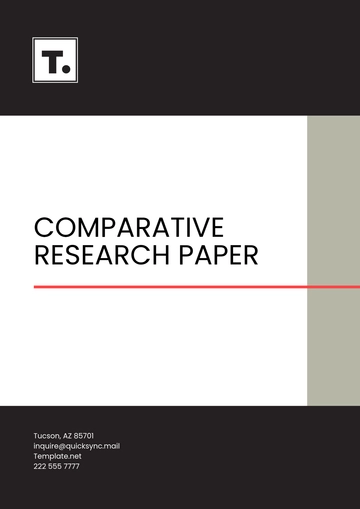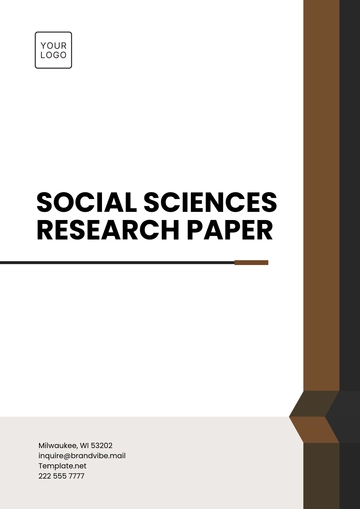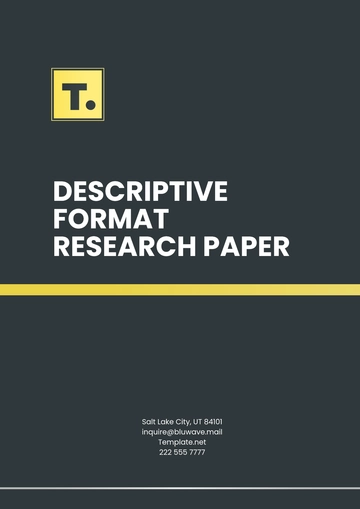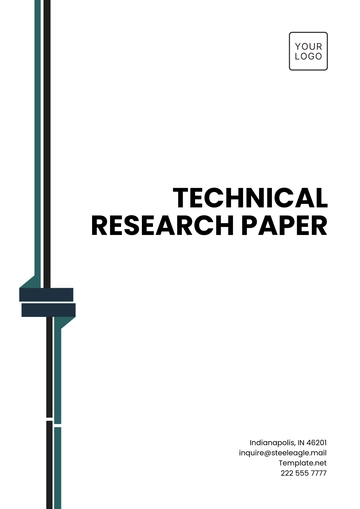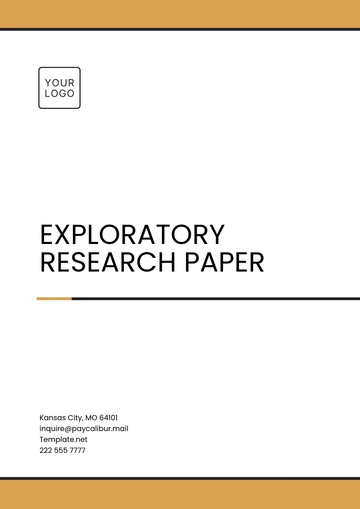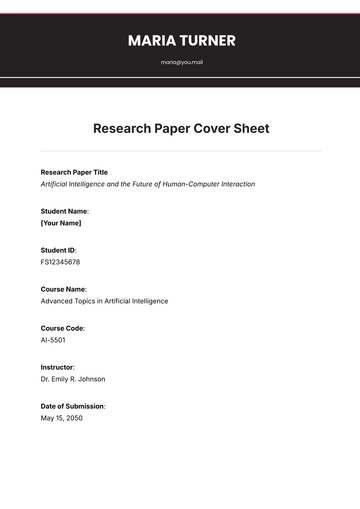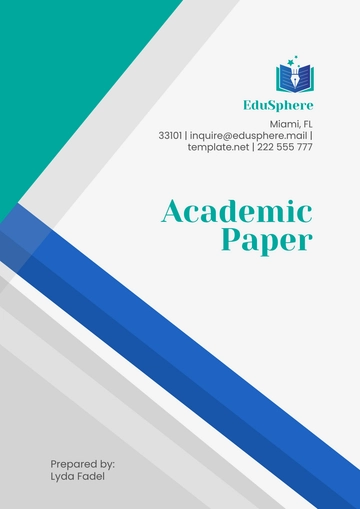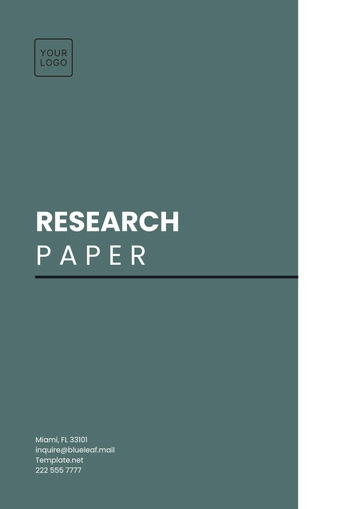Free College Research Paper
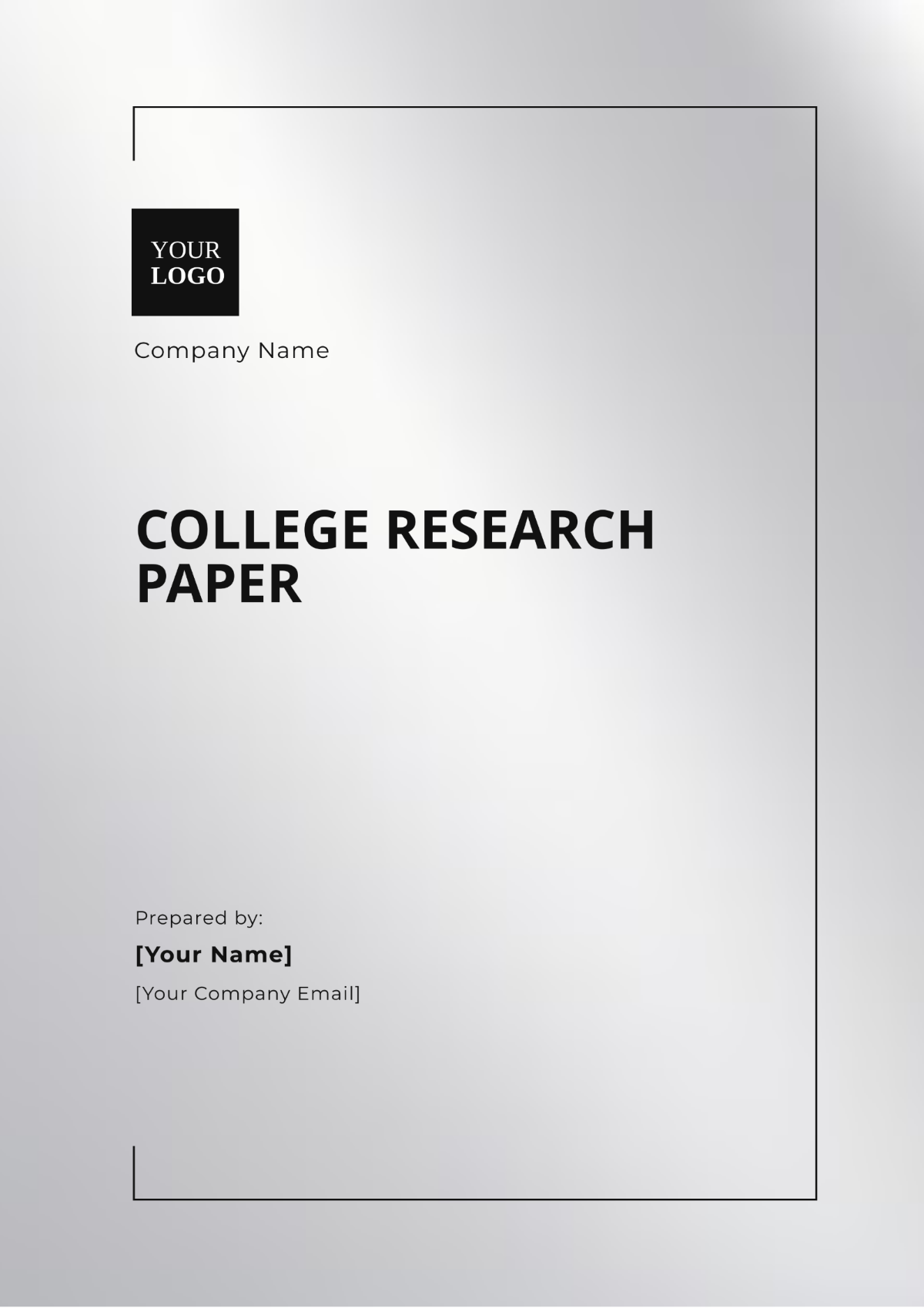
Prepared By: [Your Name]
Date: July 25, 2050
Introduction
The advancement of technology has significantly influenced various sectors, with education being one of the most impacted areas. This research paper aims to explore how emerging technologies are transforming modern education systems, evaluating their implications for teaching methods, student engagement, and overall educational outcomes. By examining current trends and future projections, this paper contributes to the academic discourse on the intersection of technology and education.
Academic Research
Abstract
This study investigates the role of emerging technologies in reshaping educational practices. It highlights key technological innovations such as artificial intelligence, virtual reality, and blockchain, and their applications in educational settings. The research methodology includes a comprehensive literature review and analysis of case studies from institutions that have adopted these technologies.
Introduction
The integration of emerging technologies in education has become a focal point of research and discussion. Technologies such as artificial intelligence (AI), virtual reality (VR), and blockchain are increasingly being incorporated into educational environments to enhance learning experiences, streamline administrative processes, and foster innovative teaching methods. This paper aims to analyze these technologies' impact on education and provide insights into their potential future developments.
Literature Review
The literature review encompasses recent studies and publications on the use of AI, VR, and blockchain in education. It discusses how these technologies have been utilized to create immersive learning experiences, personalize education, and secure academic records. Key sources include:
Smith, J., 2048. The Future of Learning: AI in Education. TechPress.
Brown, L., 2049. Virtual Realities: The New Classroom. EdTech Publications.
Methodology
The research employs a mixed-methods approach, combining qualitative and quantitative data. Surveys and interviews were conducted with educators and students to gather firsthand insights into their experiences with emerging technologies. Additionally, case studies from institutions that have implemented these technologies were analyzed to assess their effectiveness.
Results
The findings reveal that technologies such as AI and VR have positively influenced student engagement and learning outcomes. AI has enabled personalized learning paths, while VR has provided immersive educational experiences. Blockchain technology has improved the security and transparency of academic records. However, challenges such as technology accessibility and the need for teacher training remain significant.
Discussion
The discussion section explores the implications of the research findings for educational institutions and policymakers. It emphasizes the need for continued investment in technology and professional development to maximize the benefits of these innovations. The paper also suggests potential areas for future research, including the long-term effects of technology on educational equity and the integration of emerging technologies in diverse educational contexts.
Conclusion
Emerging technologies are reshaping modern education by enhancing learning experiences, personalizing education, and improving administrative efficiency. As technology continues to evolve, educational institutions must stay abreast of these developments and adapt their practices accordingly. This research contributes valuable insights into the transformative potential of technology in education and serves as a foundation for future studies in this field.
- 100% Customizable, free editor
- Access 1 Million+ Templates, photo’s & graphics
- Download or share as a template
- Click and replace photos, graphics, text, backgrounds
- Resize, crop, AI write & more
- Access advanced editor
Achieve academic success with Template.net's College Research Paper Template. This fully customizable and editable template streamlines your writing process, ensuring a well-organized and professional paper. Utilize the AI Editor Tool for quick edits and formatting, making your research stand out effortlessly. Perfect for students aiming for excellence in their academic endeavors.


